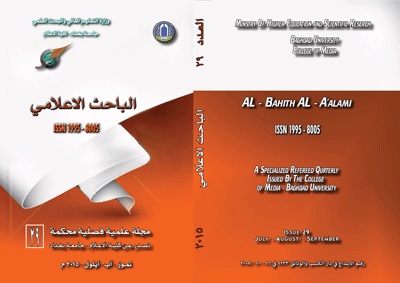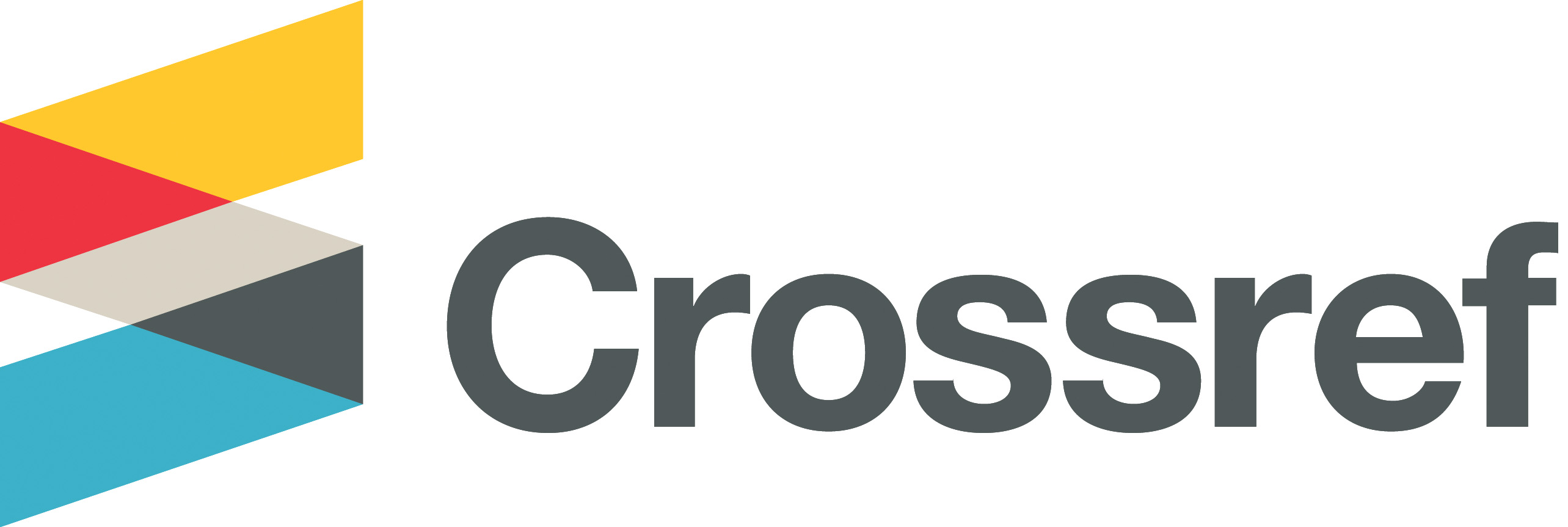Iraqi Press and its Role in Shaping Electoral Awareness (Iraqi Parliamentary Elections on 30 April, 2014 as a Model)
DOI:
https://doi.org/10.33282/abaa.v7i29.186Keywords:
Iraqi Press, Role, Shaping Electoral, Awareness, Iraqi ParliamentaryAbstract
The parliamentary election is one of the features of democratic systems that give individuals the right to participate in government and political election-making. Typically, the process of parliamentary elections received wide attention from media, as well as attention from large segments of the public because they understand the vast importance to assume political positions and associated fates of people and their destinies. Its importance comes from the fact that it allows citizens the right to participate in managing the public affairs by granting their confidence and voices to the elected president or his representatives in the parliamentary.
Media task is to emerge democratic societies, in particular, in the mission of urging people, stimulating them, educating them about their important role in political participation through voting and balloting. In addition, the media tries to make them aware of the importance of the proper selection of candidates and demonstrate the importance of this participation and its effects on the citizens and political process in general.
The subject of this research is centered on the importance of the role Iraqi press in the formation of the Iraqi electoral awareness among Iraqi voters; educate them about the importance of their role in the consolidation and strengthening the concepts of democracy through informed participation in Iraqi›s parliamentary election on April 30, 2014. The content of press articles and columns has been analyzed in three Iraqi journals of different directions for a whole month (April).
The results:
The researcher finds the following results:
Al-Sabah al-jaded and al-itijah set aside large areas of articles and columns that are concerned with public awareness, educate them about the importance of informed participation in the elections. Each one of them focused on the call to renounce sectarian rhetoric, as well as the importance of change in the political scene, which can only be achieved by the participation in the process of election. While the results of data analysis show that al-Sabah al-jaded is less concerned than its counterparts with respect to its role to make Iraqi voters aware about the importance of their participation in the elections.
Al-itijah newspaper condemned the abhorrent and secretions in mismanagement and corruption and the rule of partnership and interoperability is one of the biggest political mistakes, while al-Sabah al-jaded demonstrates great interest in raising awareness of the importance of the concept of democracy in newly democratic countries, educate them about the culture of election and concept of democracy and its practices.
The three journals reflect their political directions through their informed speech, for example, al-Sabah al-jaded newspaper reflects its governmental direction, then comes the formal newspaper of Iraqi government represented by the ex-prime minister names «Noori Al-Maliki» who was the strongest candidate at that time.
Downloads
References
2. Ibid., P. 160.
3. Ibid., P. 149.
4. Reda Hindi Juma, A Proposal for a Platform for the Development of National Affiliation and Loyalty in Light of the Challenges of Globalization, Benha University, Egypt, 2011, p. 3.
5. Rashad Saleh Rashad Al-Kilani, Social Security: Its Components and Challenges, Jordan Model, Working Paper, International Conference on Social Security in Islamic Perspective, Al-Bayt University, 3-4 July 2013, pp. 3-4.
6. Khudair Idris, Chaldean social thinking and its relation to some social theories. 2, Department of University Publications, Algeria, DT, p. 97.
7. Makhlouf Boukrouh, The Impact of Communication Technology in Receiving the Technical Discourse, Fikr and Society Magazine, Taekseg for Studies, Publishing and Distribution, Algeria, No. 2, 2009, p. 19.
8. GLOBAL DIGITAL STATISTICS 2014; http://wearesocial.net/blog/2014/01/social-digital-mobile-worldwide-2014/
9. . Ahmed Abdelkader, A major shift in Arab media abuse with the digital revolution, http://aitnews.com
10. Ross Dawson, The Future of Arab Media, www.arabmediaforum.com/en/media-center
11. Abdul Baqi Abdul Jabbar, Theories of Urban Growth and Urbanization, www.ahewar.org
12. Mohammed Said Al-Faraj, Social and Personal Construction, Dar Al-Maarifa Al-Jami'ya, Alexandria, Donna Sunnah, p. 82.
13. Fawzia Diab, Social Values and Customs, Dar al-Nahda al-Arabiya, Beirut, 1980, p. 25.
14. Guy Roche, Introduction to General Sociology, 1, translated by Mustafa Shalaby, The Arab Foundation, Beirut, 1983, p. 88.
15. Abdul Ghani Emad, Theology of Takaful, Center for Arab Unity Studies, Beirut, 2006, p. 290.
16. Mohamed Atef Ghaith, Social Change and Planning, Dar al-Maarifa al-Jami'iya, Alexandria, 1985, p. 112,115.
17. Zaki Naguib Mahmoud, Our Culture in the Face of the Times, 3, Dar al-Shorouk, Cairo, 1982, p. 160.
18. Taha Ahmed et al.: Studies in the Effect of Satellite Channels on Society and its Groups, Dar Al Fajr Publishing and Distribution, Baghdad, 2013, pp. 114- 117.
19. Mohammed and the conscious interaction with the media, www.alhadidi.files.wordpress.com14 / 03/2014.
20. Kazem Shabib, Family Violence: A Reading of the Phenomenon for a Healthy Society, Arab Cultural Center, Morocco, 2007, p. 80.
21. Ross Dawson, op. Cit.
Downloads
Key Dates
Published
Issue
Section
License
Authors retain copyright and grant the journal right of first publication with the work simultaneously licensed under a Creative Commons Attribution License (CC BY 4.0) that allows sharing the work with recognition of authorship and initial publication in ABBA journal.


















